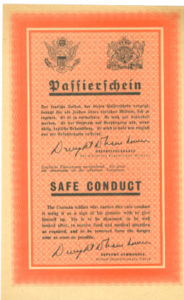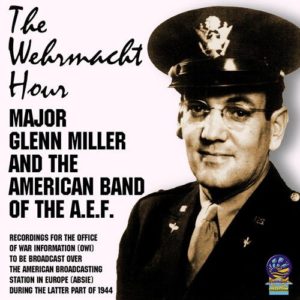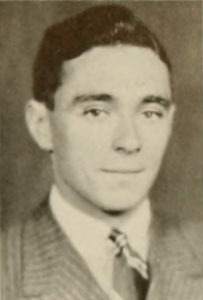One of the most effective pieces of propaganda that came out of the Office of War Information (OWI) was the Safe Conduct Pass leaflet, which guaranteed safekeeping for the captured German soldiers. These passes were shot off of airplanes in non-exploding containers and drifted to land like leaves from a tree.

The concept of safe passage documentation was not new, having first been recorded in biblical times. In the middle ages, when a Christian wanted to travel to the Holy Land through an Islamic run territory, they needed transit papers to ensure safe travel to Jerusalem. At the Geneva Convention of 1929, a specific effort was made to revise the rules of the treatment of prisoners of war, especially in relation to eliminating reprisals and collective punishments.
The Safe Conduct Pass in World War Two was produced by the OWI-SHAEF Psychological Warfare Division working in close conjunction with their British counterpart. Early in the war, the British, Russians and French were all distributing surrender leaflets, but there was no uniformity to them, and some of the rules were not the same depending on who produced them. Once the United States was involved in the war, and after the collective British and American effort, a uniform and official Safe Conduct Pass was created. Continue reading “Safe Conduct Pass”


